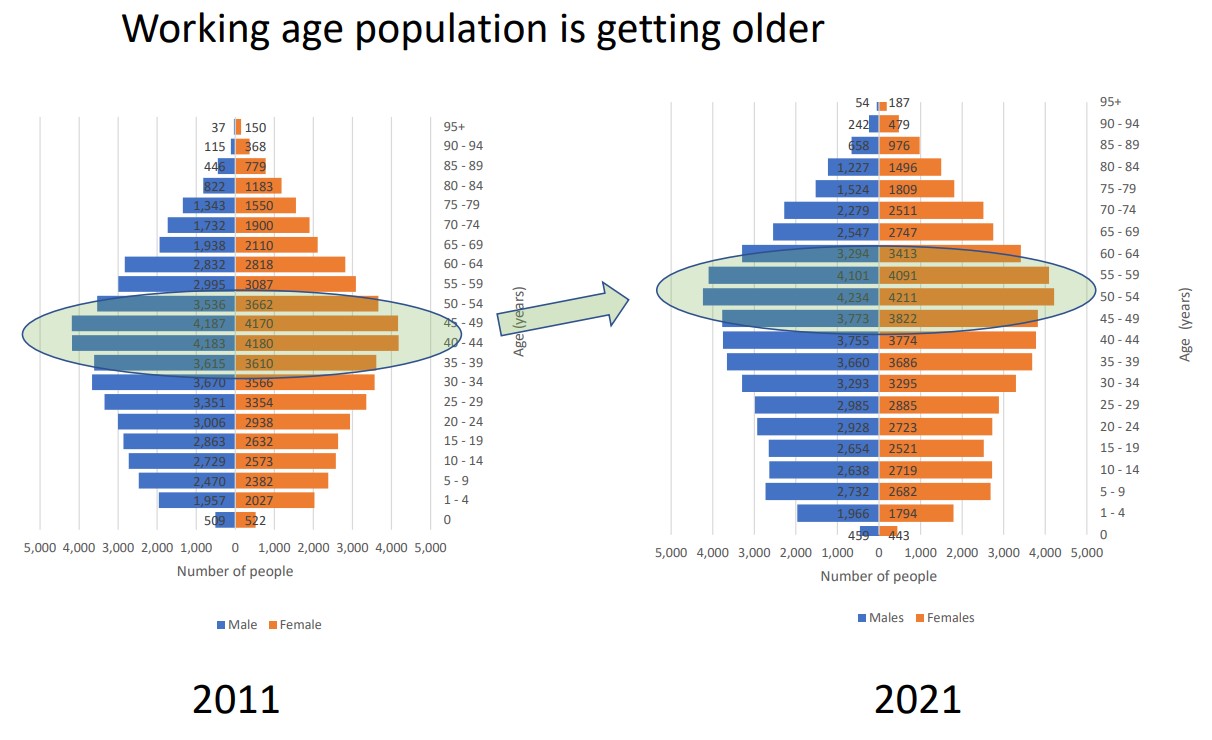


Workers in Jersey will have to increase their productivity by at least 7.5% over the next 17 years if the island is to support its increasing number of pensioners without significant population growth.
Economic Development Minister Kirsten Morel said that employees needed to increase their economic value, not by working more hours but by making the output of hours worked more valuable.
Giving his first speech as a minister to the Chamber of Commerce, Deputy Morel trailed his Future Economy Programme – a document due in September which will set out the government’s strategy for economic development between now and 2040.
Over the past two decades, productivity in Jersey, including in financial services, has flat-lined at best.
Setting out the significant challenges facing the island – not least of which is that, without migration, the number of over-65s will increase by 50%, while the working-age population will fall by 10% by 2040 – Deputy Morel said: "The EU has seen productivity grow at an average of 2.1% per year whereas Jersey’s productivity has fallen.
"Had Jersey’s productivity grown at the EU average, our economy would be £200m bigger.
"Between now and 2040, we need each worker to produce at least 7.5% more value in real terms. The further we are away from this productivity growth of at least 7.5%, the more population growth that will be required. Our challenge is to get as close to that minimum 7.5% as possible."

Pictured: In 2021, there were 1.93 people of working age in Jersey for every person of non-working age. By 2040 this ratio is estimated to fall to between 1.4 and 1.7.
He added that he believed the island's economy needed to be "rich and diverse" and for "life to be about more than just work".
"For growth to be sustainable, we need to provide a diverse economy with career opportunities that excite young and ambitious minds," Deputy Morel said.
"It means we have to provide a resilient economy that can withstand unexpected shocks and we have to deliver an economy that minimises its environmental impact. In turn, this means minimising population growth.
"The Future Economy Programme is designed to deliver exactly this."
Deputy Morel also highlighted the challenges Jersey faced to achieve this. Over the past 20 years, Jersey’s economy has grown by just 0.1% a year on average. Jersey currently has just over 1.9 working people for every single non-working person but, by 2040, that will fall by half a person to 1.4 working people.
Giving a taste of what is likely to be included in the strategy document, Deputy Morel told the audience of business representatives that Jersey had begun to attract investment into plant-based pharmaceuticals.
He added that by harnessing wind power, the island could produce and sell on renewable energy, which could generate millions of pounds of revenue for the local economy.
FOCUS: Can Jersey avoid hitting 150,000 people by 2040?
Comments
Comments on this story express the views of the commentator only, not Bailiwick Publishing. We are unable to guarantee the accuracy of any of those comments.